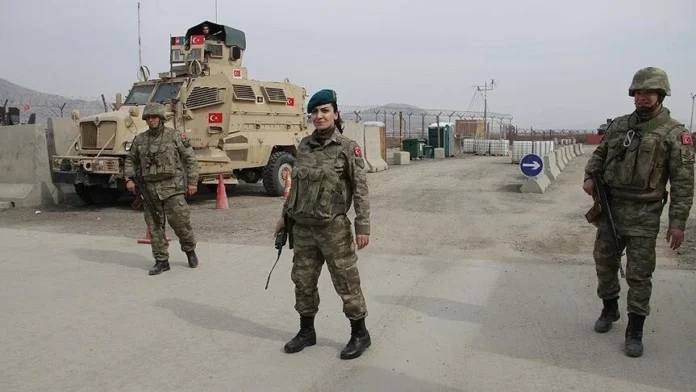Author: Levent Kemal
Affiliation: Freelance Journalist
Organization/Publisher: Al Jazeera Centre for Studies
Date/Place: August 2021/ Doha, Qatar
Type of Literature: Analysis Paper
Number of Pages: 9
Link: https://studies.aljazeera.net/en/analyses/turkeys-role-afghanistan-major-risk
Keywords: Turkey, Afghanistan, China, Russia, U.S.A, Great Power Competition
Brief:
Levent Kemal analyzes the Turkish situation in Afghanistan after the American withdrawal and the Taliban control of the country. Kemal underlines the Turkish objectives of its military mission in Afghanistan along with its expected international and field risks. He claims that a competition over power in Asia will start due to the current situation since Russia and China will seek to fill the power vacuum created by the US’s withdrawal. Accordingly, Turkey will confront great risks if it would seek to take over a role in Asia through its role in Afghanistan. Although Turkish military forces have been in Afghanistan since 2003 and it has managed (till now) to balance its relation with great global powers, Kemal assumes that if Ankara seeks to take command of the task in Kabul, it would not be able to manage the relation between Asia and the West. This is not only due to the change of the government in Kabul, rather it is the change of the players and the rules of the game internationally, regionally, and in field. Moreover, the Turkish economic relations with Asian great powers or the West are not in its favor. Consequently, Turkey does not have the ability to maneuver between these great powers or even to keep the balance with them. To elaborate, if Ankara would choose the Asian powers, being pressured by its complicated economic relations with China and Russia, it may suffer US sanctions that would affect both its economy and defense industries. On the other hand, if Turkey would seek military and political influence in Afghanistan via coordination with the US, this would provoke Russian intervention against Turkey in such areas since these regions are considered by Moscow as ‘near broad’ which should be under its own control and responsibility. In the field, the author assigns some other risks that could threaten Turkish existence in Afghanistan. It could be summarized in the ‘potential internal turmoil ’in the country as well as the huge number of armed organizations that could threaten the Turkish military presence either from coordination with great powers’ intelligence or by its own based on the hostility between Turkey and the Syrian branches of these groups. He concludes that the Kabul mission which has been planned with the support of the US and NATO, was undertaken to maintain relative gains to Ankara including its relations with the US, its position in NATO, being a diplomatic channel between Afghanistan and the West, and direct and dominant protector of the investments in the region. However, the dramatic advancements that came have changed the equation, which put Turkey in a difficult situation that requires alternative discourse if it wants to continue in its task. Finally, he recommends Turkey to free itself from its task in Afghanistan and from its costly military presence and airport control. Accordingly, Turkey could only achieve the re-balance with the Western powers through its role in Afghanistan.
By: Yomna Süleyman, CIGA Research Assistant




